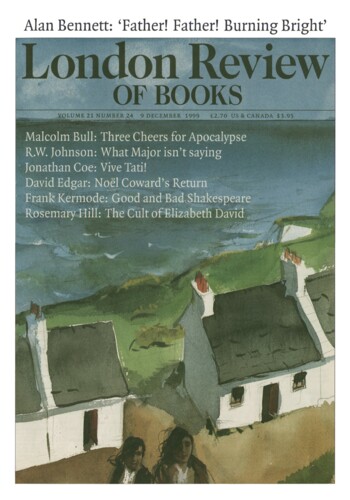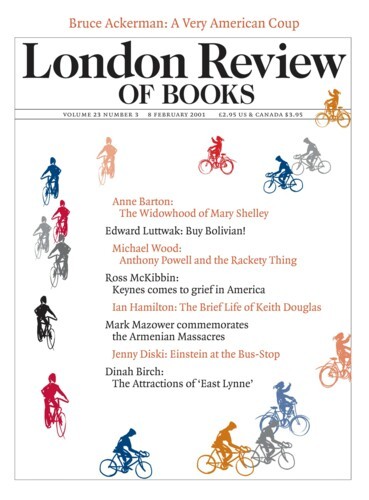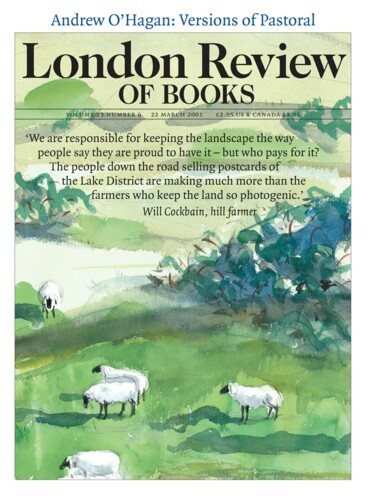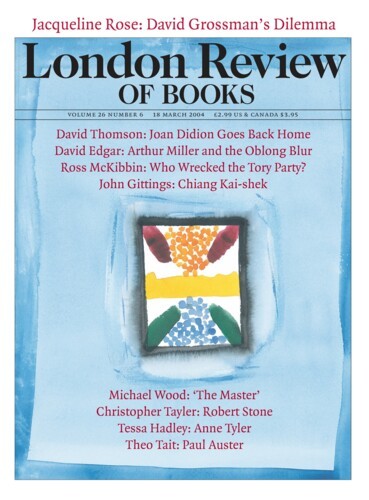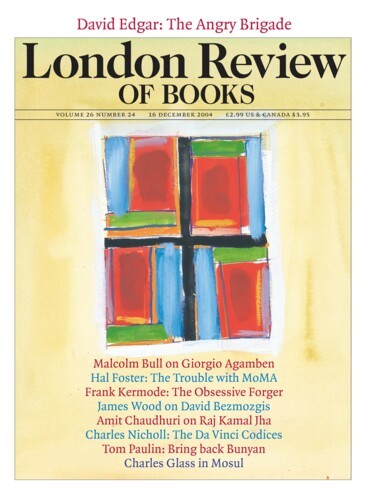Be flippant: Noël Coward’s Return
David Edgar, 9 December 1999
In the film about Noël Coward that Adam Low made for Arena in 1998, there is a shot of Arnold Wesker watching a recording of a Royal Court fundraising gala in which Coward is marvellous but clearly miserable as the restaurant owner in an extract from Wesker’s The Kitchen. Less emblematic but equally germane is the story, told in Philip Hoare’s 1995 biography, of Coward’s visit to the Court to see David Storey’s grittily realistic Rugby League play The Changing Room. His attention having been drawn to the male genitalia on display in the bath scene, Coward remarked: ‘13 acorns are not worth the price of admission.’‘
